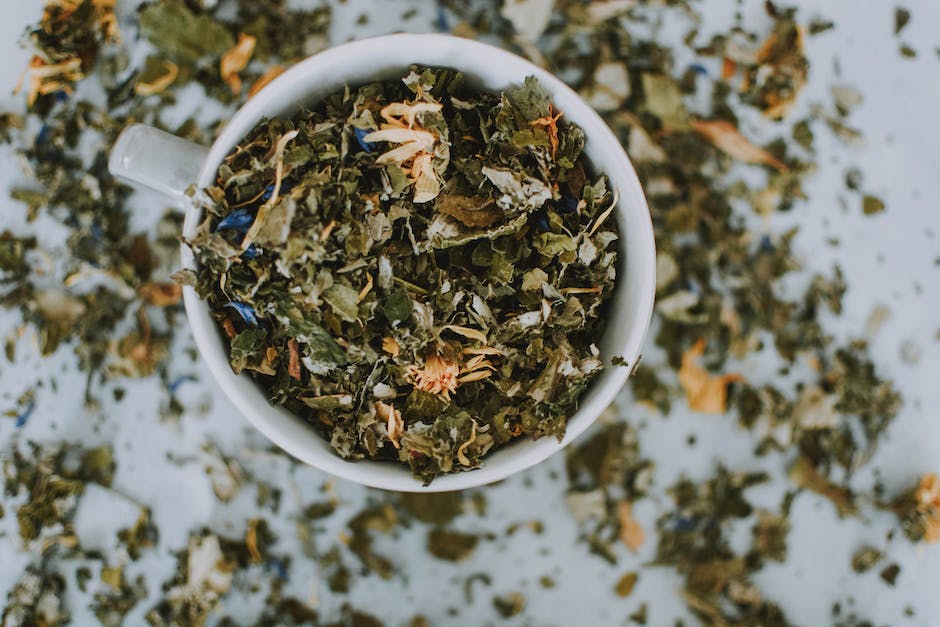
“From Stress to Serenity: Can Supplements Ease Anxiety and Promote Relaxation?”
In today’s fast-paced and stressful world, anxiety and stress have become increasingly common. Whether it’s work pressure, personal problems, or simply the constant barrage of news and social media, it’s no wonder that more and more people are seeking relief from their anxiety and stress. While there are many different approaches to treating anxiety, supplements are a popular and promising option for those looking to reduce their symptoms and promote a sense of relaxation. In this article, we’ll explore the science behind these supplements and whether they can truly provide the relief that so many are craving. So if you’re one of the millions of people struggling with anxiety and stress, read on to find out if supplements may be able to help you find your way from stress to serenity.
1. Understanding anxiety: the toll it takes on the mind and body
Anxiety can be a debilitating condition that affects both the mind and the body. It is a normal response to stress, but when it becomes excessive and persistent, it can take a toll on an individual’s mental and physical health. Anxiety affects different people differently, but it generally manifests as overwhelming feelings of fear, worry, and unease.
The toll of anxiety on the mind can be profound. People with anxiety may find it difficult to concentrate and think clearly due to the constant barrage of anxious thoughts. The condition can also cause irritability, mood swings and lead to feelings of isolation or feeling alone. Anxiety can also affect an individual’s overall sense of well-being, resulting in low self-esteem, poor relationships, and difficulty sleeping.
Anxiety can also affect the body in a multitude of ways. It can cause excessive sweating, trembling or shaking, muscle tension, and tightness in the chest. People with anxiety may experience heart palpitations or shortness of breath, dizziness, and difficulty sleeping. Over time, these physical manifestations of anxiety can cause long-term health problems, particularly if left unmanaged.
- Take Action: If you or someone you know is struggling with anxiety, recognize that it is a treatable condition. Talk to a healthcare professional about the best course of treatment. Engage in regular exercise, adopt healthy habits such as reducing caffeine and alcohol intake, and practice mindfulness techniques such as meditation or deep breathing exercises. Lastly, remember that anxiety affects many people and there is no shame in seeking help.

2. The art of relaxation: proactive steps to reduce anxiety symptoms
Stress and anxiety can be overwhelming, but there are proactive steps we can take to relive anxiety symptoms and promote relaxation. The art of relaxation is about finding ways to be present in the moment, breathe deeply, and let go of stressors. By practicing relaxation techniques regularly, you can enhance your mood, improve your sleep, and enjoy a calmer and more grounded life. Here are some practical approaches to help you start your relaxation journey:
- Mindfulness and Meditation: Mindfulness is all about being present in the moment – it can help you focus on the here and now, and reduce anxiety about the future. Meditation is another way to quiet your mind and harmonize your breathing with your thoughts. You can start with just a few minutes each day and gradually work your way up.
- Progressive Muscle Relaxation: This technique requires tensing a specific muscle group for a few seconds, then releasing it and noticing how your body feels. You can start with your toes and work your way up to your head, all the while deeply inhaling and exhaling.
- Visual Imagery: Close your eyes and imagine a peaceful scene, like a forest or a beach. Try to incorporate all of your senses into the visualization, such as feeling the sand beneath your toes or smelling the salty air.
Remember that relaxation is a skill that takes effort to cultivate. It may feel uncomfortable at first, but with regular practice, it can become easier and more natural. Take time each day to focus on your wellness. With the tips above, you can reduce anxiety symptoms and find comfort in a calmer, more centered life.
3. Harnessing the power of supplements: exploring natural remedies for stress relief
Stress is a prevalent problem, and it can have adverse effects on individuals’ physical, mental, and emotional well-being. While there are many ways to manage stress, natural remedies can be a helpful approach that does not involve medication. Supplements, in particular, offer a range of benefits that can help alleviate stress and its related symptoms.
One of the most popular natural remedies for stress relief is ashwagandha, a plant native to India that has been used for centuries in traditional medicine. Ashwagandha is an adaptogen, which means it can help the body adapt to stress. Studies have shown that it can reduce symptoms of anxiety, stress, and depression. It is believed to work by regulating the body’s stress hormones, including cortisol, and boosting the production of gamma-aminobutyric acid (GABA), a neurotransmitter that helps regulate mood.
Another supplement that can be beneficial for stress relief is magnesium. Magnesium is an essential mineral that plays a crucial role in the body’s functions, including muscle and nerve function. It can also help reduce anxiety and promote relaxation. Studies have shown that magnesium can help reduce symptoms of anxiety, such as nervousness and tension. Magnesium can be found in various foods, including leafy green vegetables, nuts, and whole grains. However, many individuals do not consume enough magnesium from their diet, which is why it may be beneficial to take a supplement.
In addition to ashwagandha and magnesium, there are several other supplements that can be beneficial for stress relief. These include omega-3 fatty acids, which can help regulate mood and reduce inflammation, and Rhodiola rosea, an adaptogenic herb that can help increase energy and reduce fatigue. While taking supplements can be helpful in managing stress, it is essential to consult with a healthcare professional before starting any new supplements. Additionally, supplements should be used in conjunction with other stress management techniques, such as exercise and mindfulness practices, to achieve the best results.
4. Herbal supplements: promoting relaxation through the power of plants
Natural herbs have been used to promote relaxation and reduce anxiety for thousands of years. With the pace of modern life, many people are turning to herbal supplements as a way to support their mental and emotional well-being. Here are some popular herbs and supplements that can help you achieve a sense of calm and promote relaxation.
Chamomile is a well-known herb that is typically brewed as a tea. It contains a flavonoid called apigenin that has been shown to bind to certain receptors in the brain, promoting feelings of relaxation and reducing anxiety. Another herb that is often used for relaxation is valerian root. This herb has been used for centuries to soothe and calm the nervous system. It contains valerenic acid, which enhances the effects of GABA, a neurotransmitter that helps regulate the nervous system.
In addition to these herbs, there are also several supplements that can help promote relaxation. One of the most popular is magnesium, which is often referred to as the “relaxation mineral.” This essential mineral is involved in many bodily processes, including the regulation of the nervous system. Another popular supplement for relaxation is ashwagandha. This adaptogenic herb helps the body adapt to stress and can improve overall well-being, including reducing anxiety and promoting relaxation. Why not try some of these herbal supplements and experience the natural power of plants for yourself?
5. Minerals and vitamins: supporting mental health with essential nutrients
Nutrients play a crucial role in maintaining every aspect of our physical and mental well-being. Specifically, minerals and vitamins are essential compounds vital for optimal brain function and cognitive performance. These nutrients are necessary for regulating neurotransmitters, mood regulation, and preventing cognitive decline over time.
It is no secret that a balanced diet is the best way to ensure the intake of essential minerals and vitamins. Foods rich in vitamins B12, C, E, and minerals such as iron, magnesium, and zinc are especially important for overall brain health. For example, Vitamin B12 is known to play a vital role in regulating anxiety and mood; studies have shown that people with B12 deficiency can experience depression and cognitive decline.
Unfortunately, even with a balanced, nutrient-dense diet, it can be difficult to get all the essential nutrients our bodies need daily. This is where dietary supplements can come in handy, bridging any nutritional gaps that may exist. By taking supplements, individuals can ensure they are getting all their recommended daily vitamins and minerals to support optimal brain function. However, it is always best to consult a healthcare professional before starting any supplement regimen.
6. Omega-3 and probiotics: the role of gut health in anxiety reduction
Recent studies have found a strong link between gut health and anxiety reduction. The two most important factors are omega-3 fatty acids and probiotics. Incorporating these two nutrients into your diet can have a significant impact on your anxiety levels.
Omega-3 fatty acids are essential to maintain a healthy brain function. They help reduce inflammation and provide protection against conditions such as depression and anxiety. Examples of foods rich in omega-3 include fatty fish, such as salmon and tuna, as well as chia seeds, flax seeds, and walnuts. Including these foods in your diet can support your mental health and reduce anxiety.
Probiotics, on the other hand, play a crucial role in maintaining a healthy gut flora. They are live microorganisms that, when taken in sufficient amounts, provide numerous health benefits, including anxiety reduction. Probiotic-rich foods include yogurt, kefir, miso, and sauerkraut. Incorporating these foods into your diet can help support gut health and reduce anxiety. In conclusion, incorporating Omega-3 fatty acids and probiotics into your diet can have a significant impact on your mental health and anxiety reduction. By consuming a diet rich in these nutrients, you can support a healthy gut microbiome, reduce inflammation and preserve healthy brain function.
7. The verdict: supplementing for serenity and the science behind it
If you’re experiencing chronic stress and anxiety, you might want to consider supplementing with natural remedies to help manage your symptoms. While prescription medications can provide relief, they often come with adverse side effects and the risk of dependency. Many herbal supplements have been proven effective in reducing stress without the negative impact on your body and mind.
One such herb is Ashwagandha. This adaptogen herb is commonly used in Ayurvedic medicine and has been studied for its potential stress-reducing benefits. Studies have shown that Ashwagandha can lower cortisol levels, the hormone released during times of stress. It also has anti-inflammatory properties, which can help ease the physical symptoms of stress.
Another supplement worth trying is Rhodiola Rosea. This herb has been found to improve energy levels and cognitive function while also reducing stress and anxiety. It works by increasing the levels of serotonin and dopamine in the brain, which are neurotransmitters that help regulate mood. Rhodiola also has antioxidant properties, which can protect your body and mind from the damaging effects of stress and inflammation. Supplementing with Rhodiola can help you face everyday stressors with a clear mind and positive outlook.
In conclusion, while medication may be necessary for some people, there are natural alternatives that can provide relief from stress and anxiety without the negative side effects of prescription drugs. Supplements such as Ashwagandha and Rhodiola Rosea have been studied extensively and have been shown to be effective. Consider adding them to your daily routine and experience the serenity they can bring.
To conclude, although it may not be the only way to manage stress and anxiety, the use of supplements has been suggested to play a beneficial role in helping people calm down and find inner serenity. In other words, this form of natural supplementation may be the right choice for those looking to better manage stress and promote a feeling of peace and relaxation.

























